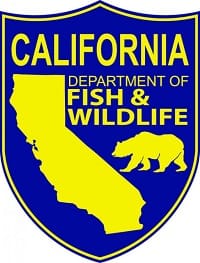California Bear Poachers Receive Stiff Sentences in El Dorado Court

Two northern California men have been sentenced to fines and jail time for unlawfully killing bears and selling their gall bladders and other parts for profit. Peter George Vitali, 56, of Pioneer and Arthur Martin Blake, 59, of River Pines, pleaded no contest to misdemeanor charges of illegally taking wildlife for profit in an El Dorado County courtroom last month.
The court ordered Vitali to pay a $12,500 fine and Blake to pay a $5,000 fine. Both men will be required to serve 30 days in jail and were sentenced to an additional 36 month probationary period.
“This case is an example of the challenges our officers face,” said California Department of Fish and Wildlife (CDFW) Lt. Stacey LaFave. “Heavy fines and jail time send a strong message to poachers who unlawfully take and profit from California’s natural resources.”
Vitali and Blake were arrested by CDFW wildlife officers in April 2013, after they were found to be in possession of 20 large bear claws and three bear gall bladders in the El Dorado National Forest.
Evidence developed during the investigation suggested the suspects recently killed three bears, likely a sow and two cubs. The claws, liver and gall bladder had been removed from the sow and only the liver and gall bladder were removed from the younger two bears.
California Fish and Game laws forbid the sale, purchase or possession for sale of any bear part, including claws and gall bladders. The bile contained inside bear gall bladders is believed by some to have medicinal properties and is sold on the black market. Under California law, possession of more than one bear gall bladder is prima facie evidence that the bear gall bladders are possessed for sale.

